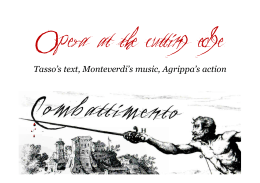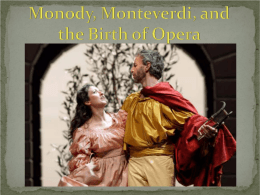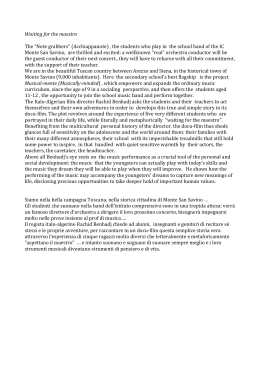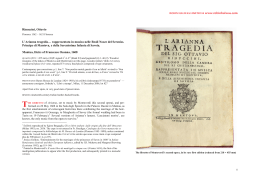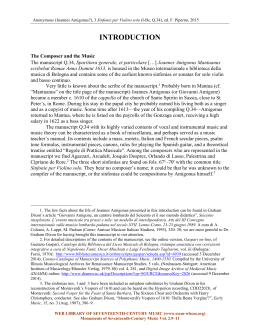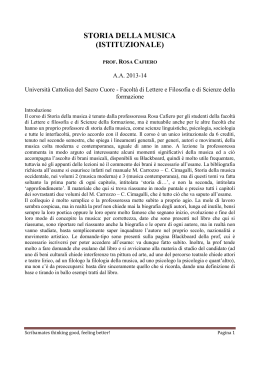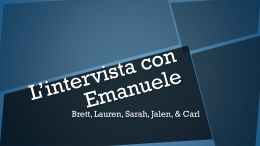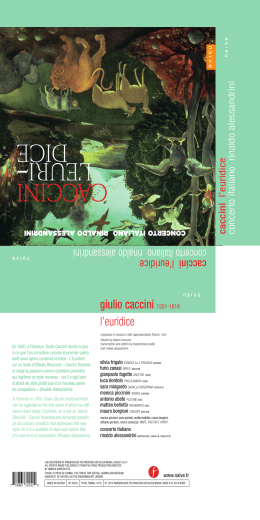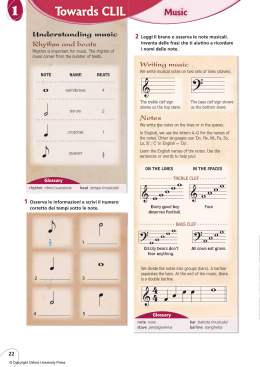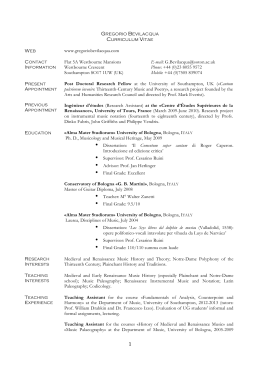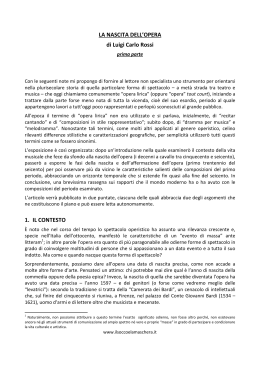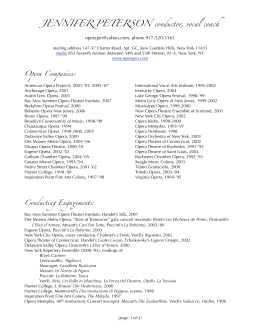Humanism and the Birth of Opera • “Baroque” – “A baroque music is that in which the harmony is confused, charged with modulations and dissonances, the melody is harsh and little natural, the intonation difficult, and the movement constrained.” • J. J. Rousseau, Dictionnaire de musique (1768) • • • • • Age of Absolutism Galilean period Cartesian period Theatrical age The continuo age – Basso continuo The Pressure of Humanism • “Academy” • Florentine Camerata – Count Giovanni de’ Bardi – Girolamo Mei (1519–1594) – Vincenzo Galilei (late 1520s–1591) • Dialogo della musica antica et della moderna (1581) The Representational Style • Stile rappresentativo • “Monody” – a single voice accompanied by the lute Intermedii • Entertainment for the wedding of Princess Christine of Lorraine and the Grand Duke Ferdinando de’ Medici (1589) • Between the acts of La pellegrina Intermedii • Entertainment for the wedding of Princess Christine of Lorraine and the Grand Duke Ferdinando de’ Medici (1589) • Between the acts of La pellegrina • Ottavio Rinuccini (1562–1621) • Emilio de’ Cavalieri (ca. 1550–1602) • Giulio Caccini (1551–1618) • Jacopo Peri (1561–1633) The Monodic Revolution • Cavalieri, Rappresentatione di Anima, et di Corpo (1600) – “for recitation in singing” – earliest printed figured bass – stile recitativo The Monodic Revolution • Peri and Caccini, Euridice (1601) [Anthology 1-65] – pastoral play – Rinuccini – Myth of Orpheus and Euridice – recitative Madrigals and Arias Revisited • Caccini, Le nuove musiche (1602) – “new music” – solo songs: madrigals and arias – Amarilli mia bella [Anthology 1-66] Favola in Musica • La Dafne (1598) – Peri and Rinuccini • La Dafne (1608) – Marco da Gagliano (1582–1643) – Favola in musica (musical tale) Operatic Conventions: Heard and Unheard Music • Representing music • Representing speech • “Music was coded one way for the characters onstage and another way for the audience” Monteverdi: From Court to Commerce • L’Orfeo (1607) – favola in musica – written for court • L’incoronazione di Poppea (1643) – Opera regia (regal work) – public music drama – commercial opera Monteverdi • 1590: began serving Vincenzo Gonzaga, Duke of Mantua • 1605: Fifth Book of Madrigals • 1607: Scherzi musicali – response to Artusi – prima pratica • Ars perfecta, stile antico – seconda pratica • emerging new musical style L’Orfeo: The Quintessential Princely Spectacle • [Anthology 1-67, 68] • Performed in 1607 (printed in 1609) • Libretto by Alessandro Striggio Monteverdi in Venice • 1613: begins serving as maestro di cappella at St. Mark’s • 1638: Eighth Book of Madrigals, Madrigali guerrieri et amorosi – Il combattimento di Tancredi e Clorinda • stile concitato (agitated style) Opera and Its Politics • Teatro San Cassiano – public opera house – opened during the carnival season, 1637 • Castrati The Carnival Show: L’incoronazione Di Poppea • Written for public Teatro SS. Giovanni e Paolo in 1643 • Libretto by Giovanni Francesco Busenello
Scaricare
